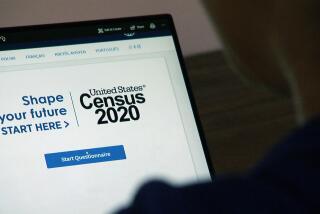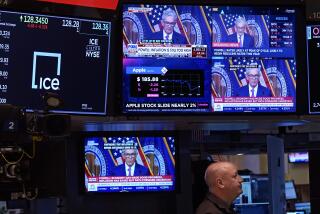Whites think race equality is nearer than blacks do, study finds
Nearly half a century after Martin Luther King Jr. described his dream that someday people would be judged not by their race but by their character, whites think a colorblind society is much closer to reality than blacks, according to a new survey from the Pew Research Center.
The findings underscore the enduring chasm between the way white and black Americans perceive racism and its continued effects, as glaring gaps in wealth and education persist between the races.
In a telephone survey of more than 2,200 adults this month, 44% of white respondents said the U.S. had a long way to go before achieving racial equality, compared with 79% of black respondents. Almost half of whites said the country had made a lot of progress toward that dream in the past 50 years; less than a third of blacks surveyed by Pew agreed.
In addition, whites were much less likely than blacks to think that blacks were treated unfairly in courtrooms, classrooms or other common situations, Pew found.
Seventy percent of blacks surveyed said that in their community, police treated blacks less fairly than whites. About half that percentage of whites -- just 37% -- agreed. Among blacks, 54% said blacks were treated unfairly at work. Just 16% of whites agreed.
About half of blacks -- 51% -- said black people were not treated fairly in local public schools, Pew found. A much smaller fraction of whites -- 15% -- held that opinion.
Whites are more likely to believe that racial equality is within reach because “the hideous things that have happened in our history -- lynchings, cross burnings, the Ku Klux Klan marching people out of town -- those things have tended to disappear,” said Jerome Rabow, professor emeritus of sociology at UCLA. Whites also point to laws against discrimination, he said.
But “when blacks talk about how they’re doing, it’s more about their daily lives,” Rabow said. Whites often miss the daily frustrations that blacks encounter, such as frequently being pulled over by police, or professors assuming they’re meeting with them because they did poorly on an exam, Rabow added.
Latinos fell between blacks and whites on most questions, with 43% of respondents saying that the U.S. had already made ample progress toward racial equality, and 48% saying a lot more progress was needed. However, Latino respondents were noticeably less likely than blacks to say Latinos and blacks get along: While 78% of blacks said the groups get along well, only 61% of Latinos agreed.
Large majorities of black and white respondents said they believed that their two groups got along well, Pew found. Yet Pew discovered that for both whites and blacks, the feeling of racial progress that followed the election of Barack Obama seems to have faded.
After Obama became president, higher shares of both groups of respondents said blacks were doing better than they were five years earlier. Since then, the numbers have dropped closer to previous levels, back down to 35% of whites and 26% of blacks, the Pew survey showed.
“That Obama effect is quickly dissipating,” said Eduardo Bonilla-Silva, professor of sociology at Duke University. “Having a black president doesn’t mean much for us in daily life.”
In the new report, Pew also examined whether blacks were faring as well as whites in the United States. Household wealth and income among black Americans still lag behind that of white Americans, its analysis of government data showed.
As of two years ago, the typical white household had a net worth of $91,405 -- more than 14 times as high as the typical black household at $6,446.
High school completion rates have drawn closer between black and white Americans, but blacks are still less likely than whites to get a college degree, Pew found. And as of three years ago, black men were more than six times as likely as white men to be incarcerated, a gap that has widened somewhat since 1960.
Blacks do seem to be catching up to whites on some measures. Voter turnout for black Americans surged beyond that of white Americans in the last presidential election, Pew noted. Life expectancies between blacks and whites have narrowed, but white babies born in 2010 were expected to live almost four years longer than black babies born that year.
ALSO:
Las Vegas feels fallout from police shootings
Robert Bales’ sentencing: Defense introduces jury to ‘Bobby’
U.S. suspends visitation programs at 3 immigrant facilities in Southland
More to Read
Start your day right
Sign up for Essential California for news, features and recommendations from the L.A. Times and beyond in your inbox six days a week.
You may occasionally receive promotional content from the Los Angeles Times.






